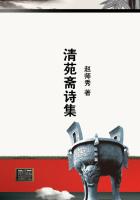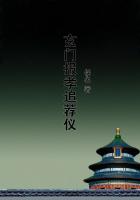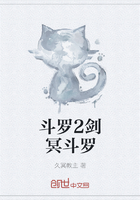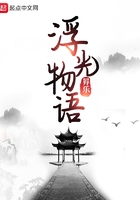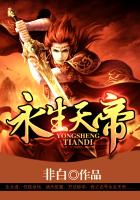He remembered how he had been tempted in Kousminski, so that he had begun to regret the house and the forest and the farm and the land, and he asked himself if he regretted them now, and it even seemed strange to think that he could regret them. He remembered all he had seen to-day; the woman with the children, and without her husband, who was in prison for having cut down trees in his (Nekhludoff's) forest, and the terrible Matrona, who considered, or at least talked as if she considered, that women of her position must give themselves to the gentlefolk; he remembered her relation to the babies, the way in which they were taken to the Foundlings' Hospital, and the unfortunate, smiling, wizened baby with the patchwork cap, dying of starvation. And then he suddenly remembered the prison, the shaved heads, the cells, the disgusting smells, the chains, and, by the side of it all, the madly lavish city lift of the rich, himself included.
The bright moon, now almost full, rose above the barn. Dark shadows fell across the yard, and the iron roof of the ruined house shone bright. As if unwilling to waste this light, the nightingales again began their trills.
Nekhludoff called to mind how he had begun to consider his life in the garden of Kousminski when deciding what he was going to do, and remembered how confused he had become, how he could not arrive at any decision, how many difficulties each question had presented. He asked himself these questions now, and was surprised how ****** it all was. It was ****** because he was not thinking now of what would be the results for himself, but only thought of what he had to do. And, strange to say, what he had to do for himself he could not decide, but what he had to do for others he knew without any doubt. He had no doubt that he must not leave Katusha, but go on helping her. He had no doubt that he must study, investigate, clear up, understand all this business concerning judgment and punishment, which he felt he saw differently to other people. What would result from it all he did not know, but he knew for certain that he must do it. And this firm assurance gave him joy.
The black cloud had spread all over the sky; the lightning flashed vividly across the yard and the old house with its tumble-down porches, the thunder growled overhead. All the birds were silent, but the leaves rustled and the wind reached the step where Nekhludoff stood and played with his hair. One drop came down, then another; then they came drumming on the dock leaves and on the iron of the roof, and all the air was filled by a bright flash, and before Nekhludoff could count three a fearful crash sounded over head and spread pealing all over the sky.
Nekhludoff went in.
"Yes, yes," he thought. "The work that our life accomplishes, the whole of this work, the meaning of it is not, nor can be, intelligible to me. What were my aunts for? Why did Nikolenka Irtenieff die? Why am I living? What was Katusha for? And my madness? Why that war? Why my subsequent lawless life? To understand it, to understand the whole of the Master's will is not in my power. But to do His will, that is written down in my conscience, is in my power; that I know for certain. And when I am fulfilling it I have sureness and peace."
The rain came down in torrents and rushed from the roof into a tub beneath; the lightning lit up the house and yard less frequently. Nekhludoff went into his room, undressed, and lay down, not without fear of the bugs, whose presence the dirty, torn wall-papers made him suspect.
"Yes, to feel one's self not the master but a servant," he thought, and rejoiced at the thought. His fears were not vain.
Hardly had he put out his candle when the vermin attacked and stung him. "To give up the land and go to Siberia. Fleas, bugs, dirt! Ah, well; if it must be borne, I shall bear it." But, in spite of the best of intentions, he could not bear it, and sat down by the open window and gazed with admiration at the retreating clouds and the reappearing moon.

